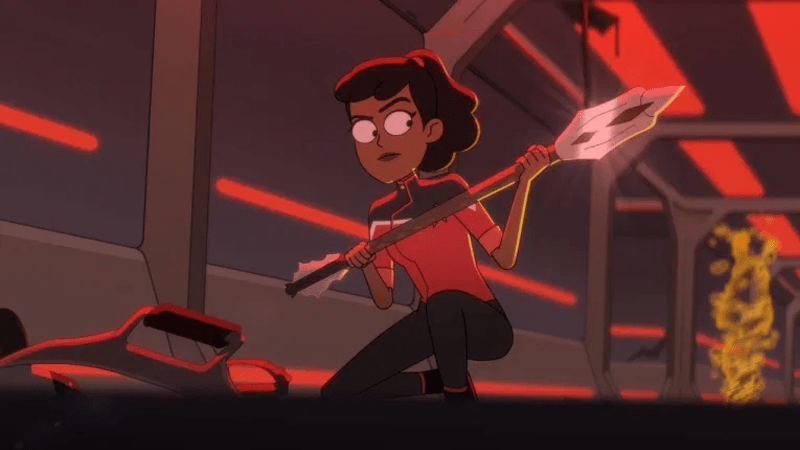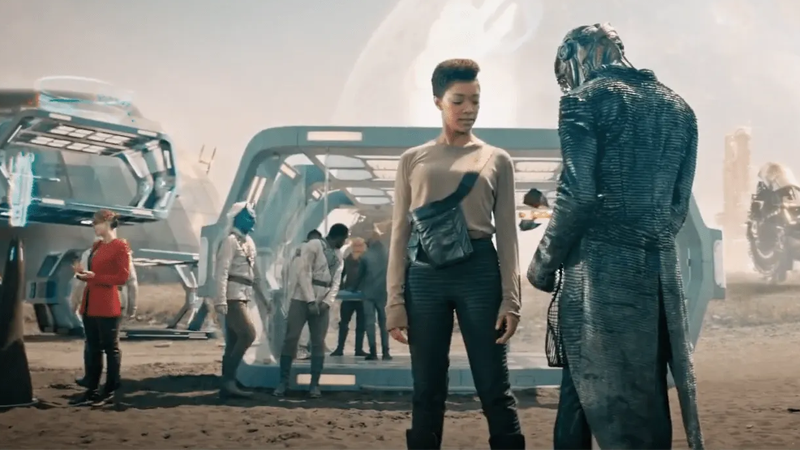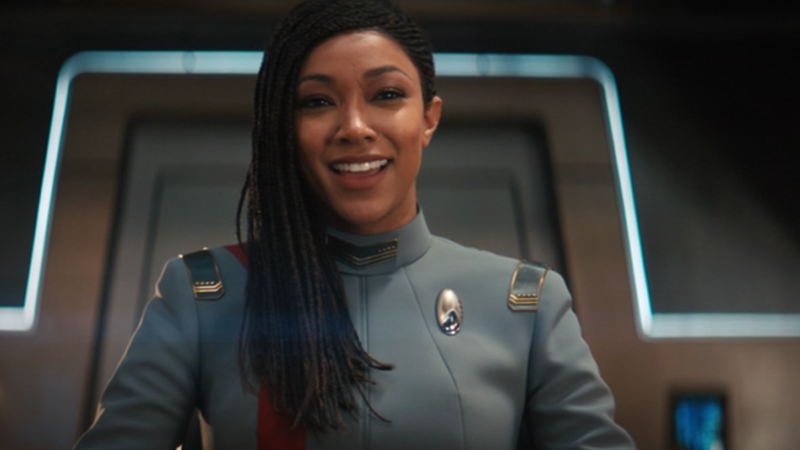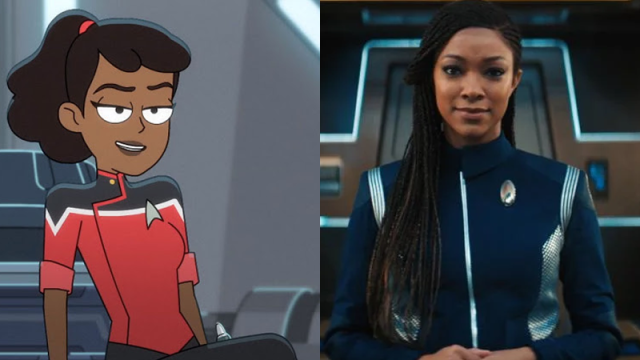For the past 23 weeks, every Friday a new episode of Star Trek has appeared, delivering us Lower Decks’ surprising debut season and the third, strongest chapter of Discovery. A lot happened in nearly half a year of boldly going, but looking back, all I can think about was how refreshing it was to watch people enjoy being good at their jobs.
Even in its most devil-may-care days, Star Trek has always kind of been a workplace drama about people who are really into their work. It just so happened that their workplace happened to be a starship, and the work so happened to be boldly going where no office drone had gone before — and maybe sometimes phasering the bejesus out of something. But it was still work; our heroes were scientists, explorers, diplomats, dubiously militaristic officers. Beyond that, they were people who sincerely, genuinely cared about what they were doing as both the ultimate intellectual curiosity and for the betterment of the society around them.
You would think, over fifty years later and in a Star Trek landscape where more tones and styles of television are being explored in the franchise than ever before — even with those 23 weeks, last year we also got Star Trek: Picard, and in 2021 there’s at the least Star Trek: Prodigy — you would perhaps think that maybe Star Trek had moved beyond this earnest core.
Skeptically, looking at this nearly six-month run of episodes, you might be forgiven for thinking that, on the surface level. Going into it, Lower Decks presented itself as a jokey series that poked holes at Star Trek’s longest-held tropes, a group of no-good ensigns who goofed around on the unimportant rungs of starship command, because they weren’t good enough to be bridge crew material. Discovery — a show that has always centered its chosen heroes less as members of a slick machine and more as fated movers and shakers the whole galaxy could orbit around — was coming into its third season to a strange future. It was a future where the Federation we always knew and admired no longer existed, and they had to adapt to this harsher, darker, seemingly meaner future to survive.

But the one thing that has really tied both these shows together across this long consecutive run is the defiance of that cynical expectation to shine an earnest, loving light on that age-old truth of Star Trek: there’s something incredibly pleasurable in watching hypercompetent smart alecs, who get away with being that because they are sincerely passionate about what they do, getting up and putting their space-pantsuits on every day. Lower Decks reflected this across all of its characters — the ensigns or the bridge crew. However, it was especially obvious in having Beckett Mariner as the focal point of its debut season. We found out that for all her-know-it-all, almost metatextual ability to perceive Star Trek lore (as we, the extremely geeky audience, do), it was a distancing tool for someone who knew, deep down, that she had the capability to be a great Starfleet officer. She was, like most of us, just wracked with the doubt as to whether she could always perfectly rise to the occasion.
Over the course of the season, Mariner struggles with this realisation by pushing her family away and in acts of frequently zany-self sabotage, but when her back was against the wall, she would repeatedly show her true nature and save her friends and crewmates from the threat of the week. Mariner’s arc, and the arcs of her fellow ensigns, were not ones about not necessarily becoming a good officer, but realising that her passion and capability in her role already made her a good one, and she just needed to believe in that herself.

A similar mirror could be found in Discovery this season, both across the crew of the titular ship and in Michael Burnham, all of them having found themselves flung into the strange, disconnected, and resource-scarce future of the 32nd century. In a future where what was left of Starfleet and Federation command — ravaged by a cataclysmic interstellar event known as the Burn, igniting the dilithium powering starship warp cores in violent explosions — was incapable of connecting and defending its member worlds, the esteemed utopia finds itself diminished, unable to act upon its desire to provide aid where it can. Upon their separate arrivals to this time, Michael and the Discovery crew are almost immediately challenged by events unfolding around them: will they commit to their positions and ideals as Starfleet officers, or will they cast aside the pretense of their work to simply survive a harsh reality?
Some answered this question much more quickly than others — part of Michael’s arc this season, in particular, involved her finding something outside of the constraints of her work in Starfleet to care about, crossing paths and falling for carefree space courier Cleveland Booker. She may have butted heads about trying to do things in the decidedly non-traditional way at times, and Discovery admittedly may have slipped up a little in how it ultimately resolved Michael’s internal conflict, but it did so to still maintain that essence of Trek’s fascination and celebration of people who believe in the work they do.
Part of Michael’s reason for staying with the Discovery is that she finds her idealism to do what’s right for the Federation shared with those around her, Book included, inspiring her to keep doing her job and sharing the inspiration that work brings. It’s an ethic that was tested when the villain of the season, Osyraa, invaded a sanctified space by hijacking the Discovery, and rewarded when Michael fights tooth and nail to preserve that space and is promoted to Captain for doing so.

That, really, will always be the primal joy of Star Trek, more so than the warp speed and the phasers firing and even the cerebral morality plays that the franchise has hung itself upon for decades and decades. Our heroes struggle and falter, yes, but they persevere on the backs of their capability and pride in the work they do, time and time again. Even when Star Trek is as melodramatic as it can be, even when it seeks to constantly question itself in times of despair and darkness, even as we get more kinds of Star Trek stories than we’ve ever had before, it all comes back to watching these people come together and just be good at their jobs.
In our own world, as institutions around us almost ceaselessly seem to fail under the heaving weight of even the barest expectations, maybe it really is the ultimate fantasy to have spent 23 weeks watching ones rise to the occasion, on the backs of people who genuinely believe in the good they can do.
